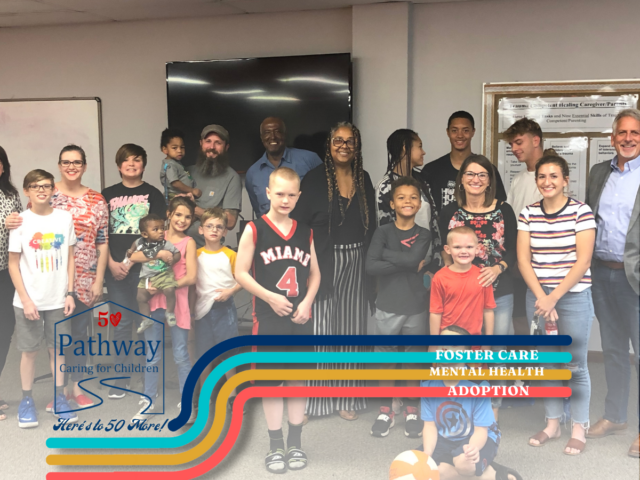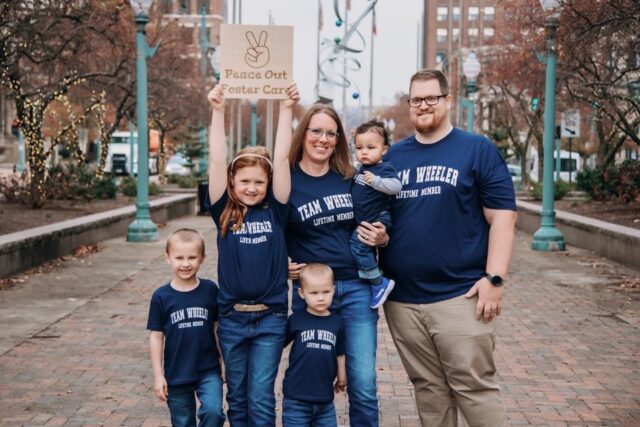
What Does it take to be a Foster Parent?
Are you seeking a way to make a profound difference in a child’s life? Have you considered opening your heart and home to a needy child? Foster parenting is a challenging but enriching journey. With the proper support, you can create a nurturing and stable environment for a child to thrive. At Pathway Caring For Children, we are committed to guiding and supporting individuals and families through every step of the foster parenting process.
Why Choose Foster Parenting?
Foster parenting is more than merely providing a roof over a child’s head. It’s about creating a safe, loving, and supportive environment where children can heal from trauma, build resilience, and reach their full potential. As a foster parent, you have the opportunity to:
- Provide stability and security to a child during a challenging time in their life.
- Offer a nurturing environment where a child can feel safe, loved, and valued.
- Help a child heal from past trauma and develop healthy coping mechanisms.
- Be a positive role model and influence in a child’s life.
- Experience the joy of watching a child grow and thrive.
- Make a lasting impact on a child’s future.
Foster parenting may present challenges, but the rewards are significant. Supporting a child and helping them shape a brighter future offers an incredibly rewarding experience.
Qualities of a Great Foster Parent
While there’s no one-size-fits-all mold for a foster parent, there are certain qualities that Pathway Case Managers feel make for success:
- Patience, Understanding and Reasonable Expectations: Children in foster care may have gone through trauma that affects their development. It is essential to meet them with compassion and understanding. Remember, how you make them feel will last much longer than what you say.
- Enriching Lifestyle Creation: Meeting basic needs is essential, but fostering an enriching lifestyle through meaningful involvement in family activities and traditions is crucial. Personalize their bedroom and introduce them to new experiences like ice skating, movies, or acts of kindness. Celebrate successes, both big and small.
- Team-player mentality: Foster parents should consult case managers when issues arise, utilize available tools, welcome constructive criticism, and follow recommendations. Open communication facilitates the expression of feelings and sets a positive example for the child. We’re all in this together.
- Support for Biological Family Relationships: Reunification frequently represents the ultimate aim. By demonstrating suitable responses, establishing boundaries, and engaging respectfully when talking about biological parents, you can positively influence the child and their family. This approach fosters respect for the children to observe.
- Successful Transition Handling: Transitions frequently occur in foster care. Prepare for and manage these changes by demonstrating healthy coping strategies. Encourage children to express feelings of anxiety, sadness, or fear. Involve them in the packing process to help them emotionally prepare and achieve closure. Establishing a structured routine at home can facilitate smoother transitions.
Pathway Caring For Children: Your Partner in Foster Parenting
At Pathway Caring For Children, we recognize that the journey to becoming a foster parent is significant. Therefore, we are dedicated to equipping you with the necessary support and resources for success. From the outset of the application process to continuous training and assistance, we are here to support you at every step.
Services and Support Offered by Pathway
- Initial Consultation and Application Assistance: We are here to answer your questions, assist you with the application process, and help you decide if foster parenting suits you. Reach out to us to begin.
- Pre-Licensing Training: Our extensive training program will prepare you with the knowledge and skills necessary to create a safe, nurturing, and supportive environment for children in foster care.
- Ongoing Support and Case Management: Our dedicated case managers are available to provide ongoing support, guidance, and resources for you and the child in your care. We work closely with you to address any challenges that may arise and ensure the child’s needs are met.
- 24/7 Crisis Support: We provide 24/7 crisis support to our foster parents, so you can be confident that assistance is always available when needed.
- Respite Care: Our respite care services provide you with a much-needed break whenever you need it. This allows you to rejuvenate and prioritize your well-being, enabling you to continue delivering the highest quality care for the child in your care home.
- Financial Assistance: We provide a daily per diem to help cover some expenses associated with caring for a foster child. This reimbursement is designed to alleviate the financial burden of fostering, but it typically does not fully cover all costs and should not be viewed as “compensation.” Additionally, foster children receive medical coverage through Medicaid and may qualify for benefits like WIC (for children under 5) and free school lunches. Some agencies also provide a clothing allowance to support the initial clothing needs of a child. Various camps and experiences for foster children are often available at no cost to the foster family.
- Community and Networking Opportunities: We provide chances for foster parents to engage with each other, exchange experiences, and foster a supportive community.
Navigating the Foster Parenting Journey
General Requirements and Qualifications
To become a Pathway foster or foster-to-adopt parent, you must meet certain general requirements and qualifications. While specific criteria may differ, they typically include:
- Being at least 21 years old.
- Demonstrating financial stability.
- Having a safe and stable home environment.
- Completing a background check and home study.
- Attending pre-licensing training.
- Being willing to work as part of a team with case managers, biological parents, and other professionals.
- Having the physical and emotional capacity to care for a child in need.
- Single individuals can become foster parents.

The Foster Parent Licensing Process
The process of becoming a foster parent can take time, but it is a worthwhile investment in the life of a child. The general steps involved in the licensing process include:
- Inquiry and Application: Contact Pathway Caring For Children to express your interest and complete an application.
- Pre-screening: Participate in an initial interview to discuss your qualifications and motivations for becoming a foster parent.
- Background Checks and Home Study: Undergo background checks and a home study to ensure your home is a safe and suitable environment for children.
- Training: Complete pre-licensing training to learn about the foster care system, child development, trauma-informed care, and other essential topics.
- Licensing: Once you have met all the requirements, you will be licensed as a foster parent and eligible to receive children into your home.
Placement and Beyond
- Matching Process: Each agency has its method for placing children into foster care. At Pathway, we build relationships with our families to match them with the needs they can best meet, considering their skills, interests, lifestyle, and family dynamics. When counties send referrals—including short profiles of children requiring care—we assess each to see if we have a family prepared to address those needs.
- Child Characteristic Checklist: During the licensing process, foster parents fill out a form known as the CHILD CHARACTERISTIC CHECKLIST. This checklist enables them to specify the traits of children they are open to caring for, including age. With hundreds of characteristics listed, it helps families narrow down their options. Additionally, if families receive a call regarding a child and feel that the match is not appropriate or the timing isn’t ideal, they can choose to decline.

Supporting Biological Children
- Informing and Preparing: Regardless of age, biological children must be made aware and ready for fostering. Explaining to them why certain children cannot stay with their parents alleviates fears that they might also be “taken from their parents.” one day.
- Temporary Nature: Informing them that fostering is intended to be temporary, emphasizing that your family will have the opportunity to love and support them for a time—yet the ultimate goal is to assist them in returning home is a crucial step in preparing children for goodbyes.
- Engagement: Encouraging their participation fosters their engagement as well.
- Protecting the Family Dynamic: It is essential to protect the nuclear family dynamic by consistently dedicating time, possibly through respite, to connect with biological children and a spouse. Use these moments to check on everyone’s well-being and address if anything needs to be adjusted.
- Safety Conversations: Ultimately, biological children in a foster family learn many life lessons early on, making it crucial to establish safety discussions and habits. Conversations about modesty, body safety, and the importance of not keeping secrets are vital. It’s also essential to help your children recognize that not all kids have experienced the same safety, security, and comforts they have. Therefore, the family must exercise patience and understanding as foster children adjust and heal.
Medical Care for Foster Children
Every foster child in Ohio is enrolled in a Medicaid plan. This medical insurance covers the child’s medical, dental, vision, and mental health needs, with no co-pays for the foster parent.
Is Foster Parenting Right For You?
Foster parenting isn’t suitable for everyone; however, if you are passionate about assisting children, eager to learn and grow, and motivated to make a difference, it could be the ideal opportunity for you.
Ready to open your heart and home to a child in need? Contact Pathway Caring For Children today to learn more about becoming a foster parent! Or call 330-818-0444 or email [email protected] TODAY!